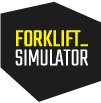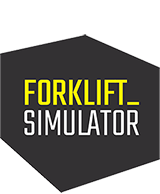
Interview with Clint Cowden of Hartnell Community College
In preparation for National Forklift Safety Day 2022 (NFSD2022) Forklift Simulator has been sitting down for chats with some of our clients. Client Chats gives clients the opportunity to tell their stories to the FLS community. Over the next few weeks leading up to NFSD2022 and beyond, look for more conversations to come.
This week we sat down with Clint Cowden. He is the dean of Hartnell Community College’s Competency-Based Education and Workforce Development pPogram. He tells us
Can you tell me a little bit about yourself and your workplace?
Clint: I’m Clint Cowden. I’m the dean of CBE and workforce development here at Hartnell Community College. We’re really here to offer a breadth of training opportunities for the entire community and so when we’re looking at those kind of training opportunities, it can be at the very beginning: just career exploration from students from fourth grade all the way through high school.
Or It could be real contract training for a large employer who wants to come in with incumbent workers. And we need to give them real specific skills. We’re going to call those black box training sessions where it’s really just how to do their current job even better.
And then we’re also here as a community college. Most people think of that traditional setting where a person is going to come here, after high school or maybe they didn’t graduate high school, and they’re going to be going through academic training. And at the end of that training, they’re going to take a left and go into the workforce or they’re going to take a right and they’re going to transfer to the university.
So we’re really looking at the entire community and how we can meet their needs.
So you had a program at your school for forklift training. Tell me about that program. The one before the forklift simulator.
Clint: So there’s a degree called an associate of science for transfer and it’s meant for students that are going into plant science. And one of the required courses is a tractor operation or equipment operation course. We purchased equipment in the 1980s and everybody said, well, look, you have a forklift, you have a tractor, everything’s fine, you have what you need. Now, of course, we know that it’s not current. It’s not typical of what our students are going to see.
The other segment that we had is, especially for some of our nontraditional students, the concept of just getting on a piece of equipment in front of 35 other students watching you isn’t something that’s really fun and exciting.
And so you add the second segment on top of it and an instructor like me, is talking over a running engine, and it can sound like you’re yelling at a student, right?
And so we started to see, especially in our statistics, nontraditional students were going more away from these types of careers.
If we wanted to get a larger number of students in our programs and therefore out into industry, we needed to look at some of our practices and think of some of those things that we can do better. And then if you think of the money side, what we do so much of the time with something like a propane driven forklift is it’s running on idle as we’re talking through things.
We’re burning fuel.
So environmentally, it’s not something we want to do. From an economic standpoint, it’s not something we want to do. And as we said from a pedagogy standpoint, it’s not something that we want to do.
We started to say, hey, there’s an issue.
So what does it look like now? What does the class look like? What is your curriculum for the training?
Clint: So we’re still locked into the number of hours because that’s set up by the state of California. That’s lecture lecture and lab. And we’re going over a lot of things other than just forklift operation, obviously.
But what we’re seeing now is we’re actually able to spend some extra time on those areas that tended to have been kind of more abbreviated during our previous methods of teaching. So they’re able to spend a little bit more time, especially on some of the equations when we’re looking at equipment, power and efficiency and some of those kinds of things. So we’re able to really take that time that we were using and really kind of translate it into some of the areas where students tend to have a little bit more struggles.
You said before that you had a lot of pedagogical problems with, you know, screaming at the students to get their attention over the volume of the machine. So have you seen relationships change or have you seen pedagogical changes taking place since you’ve gotten the VR?
Clint: Oh, totally. Totally. I mean, we’ve seen that, but I think it’s one step in front of that.
So we’ve had about 700 high school students come through our campus, for tours this past year. And so you would never just take a group of high school students and put them on a forklift when they’re just walking through. Right? I mean, you just wouldn’t do that.
You may have a forklift and you may have one of your students demonstrating it, but you wouldn’t do a hands on experience.
Well with VR, what are you going to do? You’re going to put them right in there.
It’s like, no, come on, you can do this. And that is where we start to break down those paradigms, right? So we see it there at first, initially, and then exactly what you’re saying. It’s really sitting there and watching students, and that puts the pedagogy moving away from me as being the sage on the stage right?
Like hey look at me, because that’s how I was trained. Right? Like look at me. I’m so awesome. I’m the instructor. I’m going to get on this piece of equipment and I’m gonna show you how to do it. And then I’m going to get off and I’m going to see if you can do it. And that’s not a great way, right? Because of course I can do it. I’ve had years of experience. I’m supposed to know how to do it.
Well, it’s very intimidating for students. And so it’s that whole thing. You know, we talk about flipping classrooms all the time, but using this type of technology, you’re able to walk in and do it quickly.
And then because I’m a huge fan of teaching a student how and then why. Now, all of a sudden, when you start talking about, Oh, hey, you’re running a forklift and it’s this tall and weighs this, is it going to pivot the forklift? That’s the statics and the mathematics behind it. Now, they’ve done it. They’re interested, they’re bought in there.
I think all of us instructors want that point at which the student has been out there and they’ve done that. I used to see that at about 3-5% of my students because they had already worked in something. They’d done that. And they have that experience coming in. Now, we can pretty rapidly get that to 85-90% of the students within two weeks of class. Getting them at that same level or that same confidence level. They still need the muscle memory. Some of those things aren’t hitting that fast, but you see that with simulation. And it’s so difficult to do when, you know, when you’re working with a piece of equipment that could kill someone.
I know it’s early and you’ve just had graduation, but do you know of any students yet who have used VR training and who have been employed?
Clint: I’ve only heard about interviews.
[But] the companies that have their people come through…that was contract training. So it’s different. And I have to be very cautious
that I don’t undermine my contract with them.
They were very happy with the training. I guess the best way that I can say is we’ve had to turn down four other for profit trainings they’re coming back and wanting more and more and more. And our our primary focus here is the community college. And we do the for profit training kind of just to fill in the gaps. And it’s really nice to see that.
Yeah, the employers really liked it and came back really quickly looking for more.
This is very interesting. It’s great to hear that what you’re doing is basically renting out the space in between classes. But of course, that space, that time, is limited because you have [your own] classes. So it sounds like you’re turning people away because of that time crunch.
So maybe you can give us a list of these companies?
[Laughter]
Just kidding.
So I’m going to let you go. Thank you so much, Clint.
Clint: Alright Thanks. Have a wonderful day.







